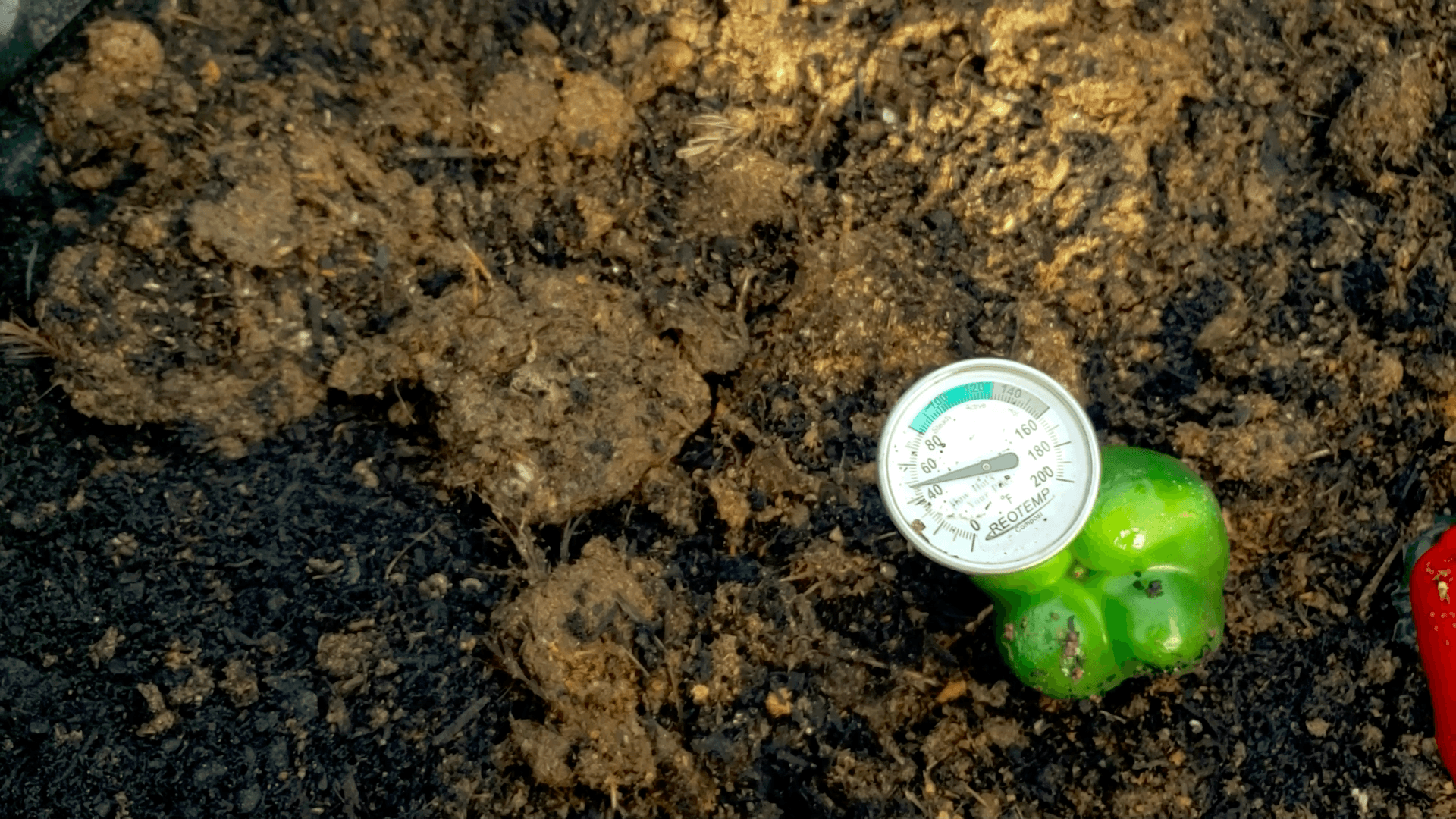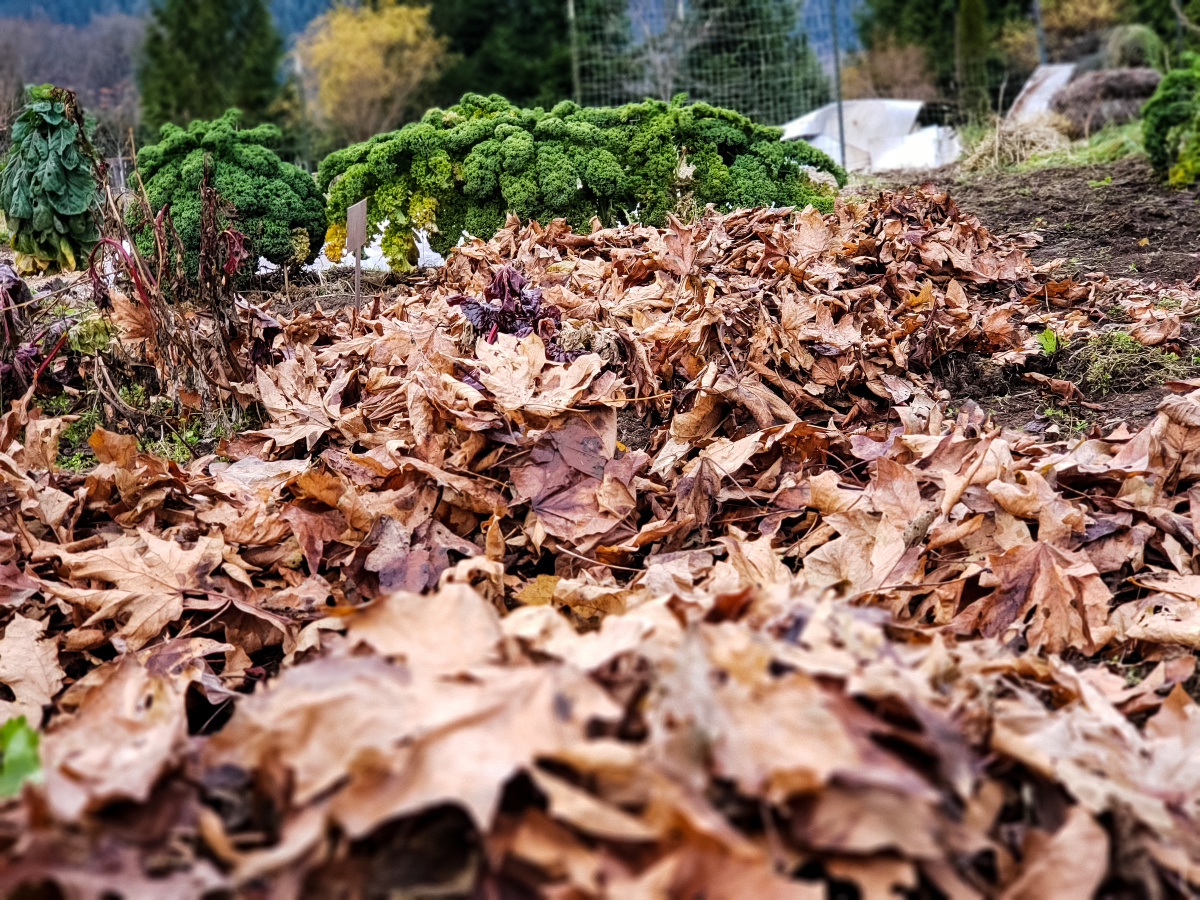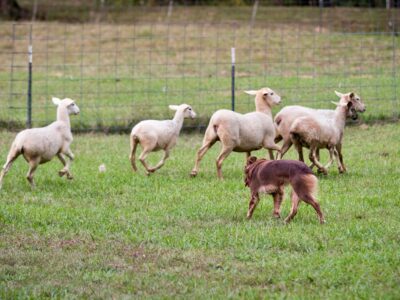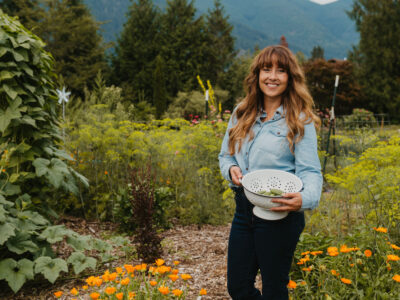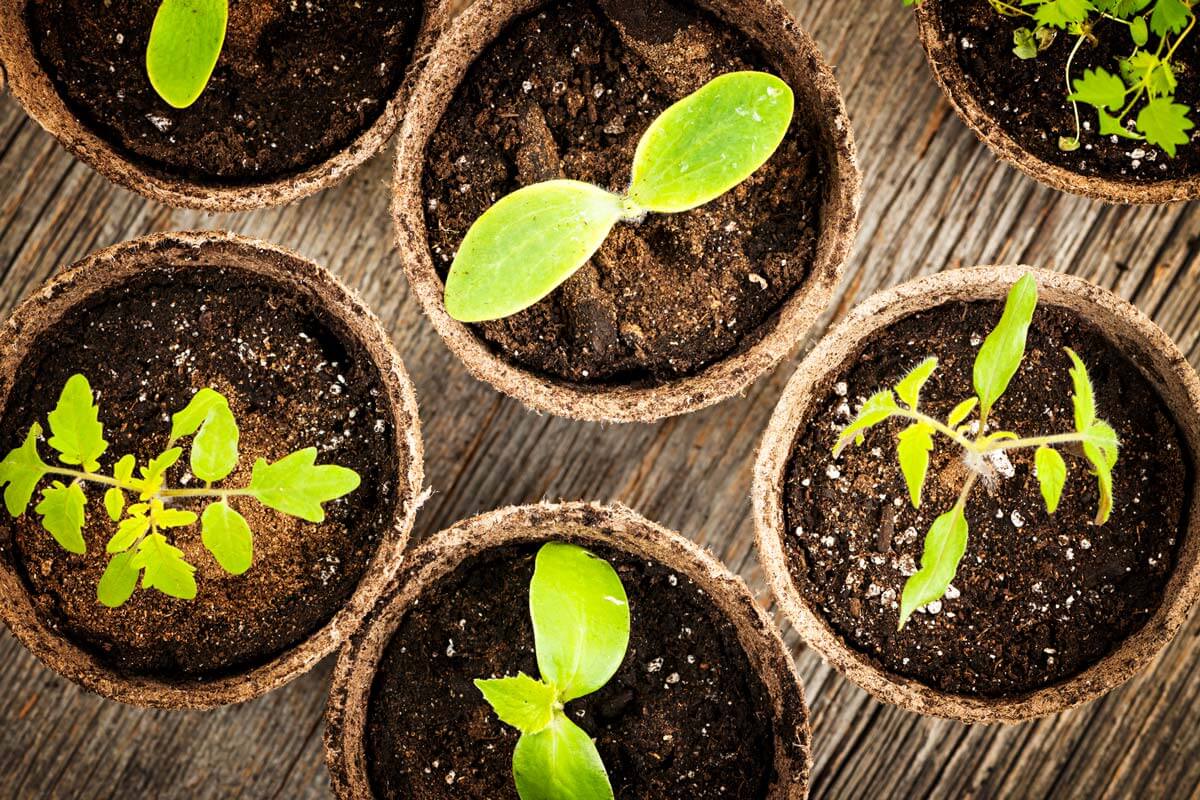Use natural fertilizers to improve your soil for a larger garden harvest and healthier crops. Below are 6 natural fertilizers plus easy tips to make your soil more fertile.
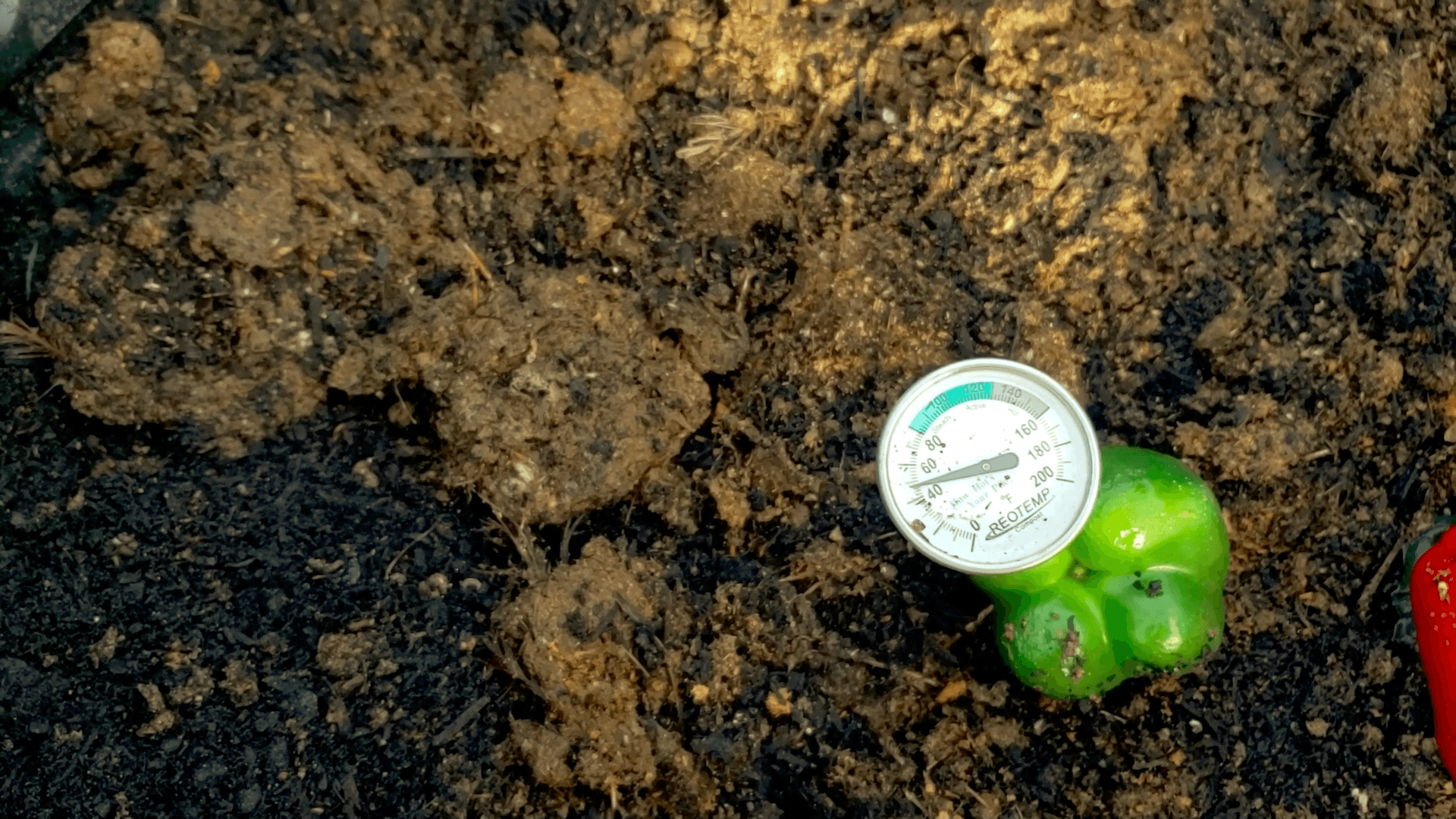
Growing your own food and gardening are addicting. No one tells you how come late winter you’ll be pining to sink your fingers and bare toes into warm soil. You’ll have secret stashes of seed catalogs tucked under your bed and you’ll even take out your seed packets under the guise of organizing them, but we know it’s because you need a gardening fix.
Just like crop rotation, sheet mulching, and soil remediation, doing these 9 garden hacks in the fall (for a better garden next year) are helpful for building up the health of your soil. Fertilizing your soil throughout the growing season is also important.
Table of Contents[Hide][Show]
6 Natural Fertilizers to Improve Garden Soil Podcast
Listen to (or read about) the 6 Natural Fertilizers to Improve Garden Soil, Episode #134 of the Pioneering Today Podcast, where we teach families how to grow, preserve and cook their own food using old-fashioned skill sets and wisdom to create a natural self-sufficient home, with, or without, the homestead.
While it’s not warm enough for us to sow any crops outdoors, there’s a lot to be done in the garden come late winter and early spring. Seeds, seedlings, and the harvest tend to get all the glory in the gardening world, but there’s one thing we shouldn’t overlook, the soil.
Your dirt is what enables all of the glorious gardening process to happen, it is the food for your plants, and eventually, the food for your family. It needs to be taken care of and, with just a little bit of forethought and work, it will reward you with lush tomatoes, nutritious greens and bushels of other harvests.
Most plants will still grow in slightly acidic to neutral soil without major issues. But there are a few plants that won’t thrive or grow well at all if they’re in the wrong type of soil. Blueberries like acidic soil and won’t do well at all in neutral or alkaline dirt.
But what about other levels in your soil, how and what exactly should you be testing in your dirt.
Why Should You Test Your Soil Levels
Learning to test the ph of your soil takes out the guessing of what your soil needs. Testing lets you know what to amend your soil with so you’re not wasting your time or money.
The most accurate soil testing is to take samples from several different areas of your garden and send it to a lab. Lab soil testing will not only test for ph level, but also for different nutrient levels and composition. You’ll find out what your major nutrient levels are on: nitrogen, phosphorous and potassium.
Some lab tests will go down further showing you trace mineral levels, like calcium, etc.
How to Test Your Soil
- Lab testing can be done at most extension offices. Check with your individual county extension office for specific details and fees. This is going to the most exact option.
- Use a home soil ph test, this soil meter will measure your ph level and can be used to retest and test different areas of your garden, containers, and raised beds.
- This is a home test kit for your soil pH, N, P, and K, but be sure to read the reviews.
How to Improve Your Garden Soil with Natural Fertilizers
First off, I should state that we only use natural methods to improve our soil. I do not use synthetic fertilizers.
You’ll read below that we use compost as the first line and blanket way to improve our garden soil, both the regular garden spot and in my container planting.
Regardless if you’ve done any testing, you can’t go wrong with composting. But knowing what other nutrients and minerals your soil is lacking, and it’s ph level, is important.
Compost -Your Garden Soil Superpower
As I stated, the first route to improve your soil, pretty much no matter what your test results show, is to add some compost.
The beauty of compost is you can make it yourself. Nature does it for us and that’s a homesteader’s dream. Turn your regular yard and food scraps into black gold.
There are many ways to do compost, from having a pile you turn every so often, using a tumbling system, to vermicomposting with worms. I’ve got 7 DIY Ways to Compost at Home for you.
What is Compost?
Compost is the breakdown and decay of organic matter such as wood, leaves, plants, and vegetables. When ready to put into your garden and soil, compost should be a black, crumbly, and fluffy (not wet and stinky), dirt-like substance.
Compost helps feed the soil and acts as a holding sponge for your fertilizer.
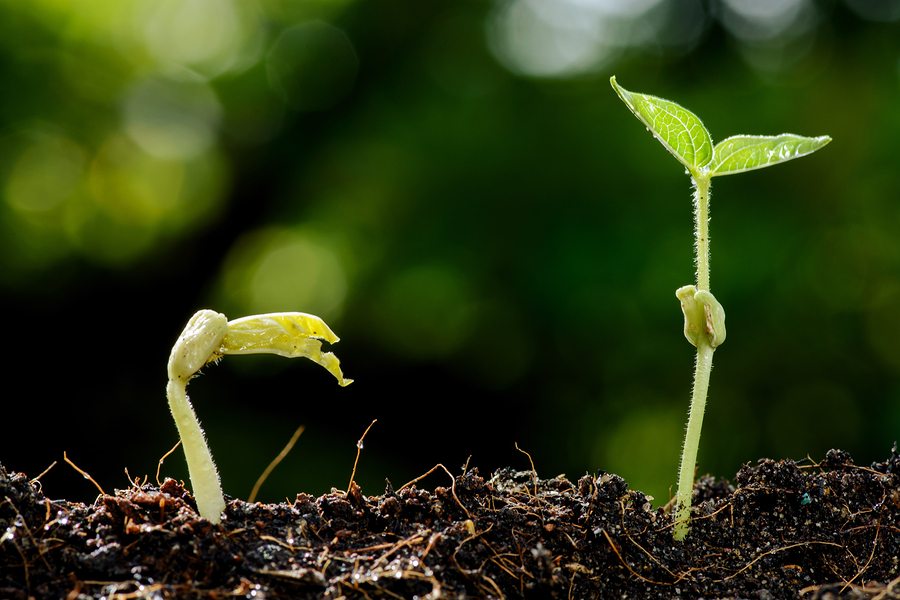
What is Fertilizer?
Natural fertilizers and compost are not the same, though many folks will use the term interchangeably.
Fertilizer is used for specific nutrient deficiencies in your soil. This is where having your soil tests come in handy to know which deficiencies your soil has, but honestly, I don’t use a soil test every year before fertilizing.
6 Types of Natural Fertilizers
- Chicken manure
- Other animal manure
- Liquid plant tea
- Manure tea
- Fish concentrate
- Cover crops
Chicken Manure
Most vegetables in an annual garden are fairly heavy nitrogen feeders, especially your tomatoes and Brassica families (think cauliflower, broccoli, cabbage, etc.) The organic natural fertilizers for vegetables I always use is chicken manure (along with proper crop rotation).
One caution to using chicken manure as fertilizer, chicken manure is both urine and poop, it doesn’t come out separately, which means its very high in nitrogen. This makes it an excellent fertilizer but it also means its very hot (a lot of nitrogen) when it’s fresh. You need to let chicken manure sit and age for preferably a year, with some other brown matter like leaves, sawdust, or top soil, before adding it to your soil.
If you don’t, you run the risk of burning your plants. The nitrogen level will be too high and the plants will die.
Other Animal Manure
This is the best fertilizer for berries and fruit plants, using composted manure from cattle, llama, and/or horses has always worked well for us and friends. Usually it’s mixed in with straw or hay from the stalls and pens.
You want to use older or composted manure as the heat from composting down will help kill any seeds that may be in the manure from their feed (aka less weeds!).
If you do go the full soil test route, you can add the specific nutrients that show low based on your test results.
Liquid Plant Tea
A lot of people like to use this for container plants and it’s an easy homemade organic fertilizer. You can do this with plant matter, specifically comfrey, for more on this check out in Episode #104 Permaculture Gardening Guide for Beginners
Manure Tea
Using composted manure, you cover it with water (in a covered container if at all possible) and let is “soak” for a specified amount of time. Then you drain out the solids and feed this homemade liquid fertilizer tea to your plants.
A note of caution, if you use manure you need to be sure the compost pile got hot enough to kill pathogens if you’re using this on your vegetables. The best advice is to put manure on the garden 120 days before harvest for safety concerns. You can check out further reading on this here
Fish Concentrate
I prefer to do a liquid fertilizer for my smaller container plants. They need to be fed more often than the regular garden so a liquid fertilizer is perfect. This is an organic fish fertilizer concentrate if you don’t have the means to make your own liquid tea.
How often should you fertilize your soil
For our fruit plants and annual vegetable garden, we fertilize once a year in the spring. Want to watch the video and the mini tour of our homestead?
For our blueberries and raspberries, I apply fertilizer when I prune (in late winter/early spring) and then place the layer of mulch on top. For more information on our care of blueberries and raspberries and perennial garden plants go here to Episode #132 Perennial Plants to Increase Food Production with Less Time
We work a compost and chicken manure layer into our annual vegetable garden soil in the late winter/early spring. This allows me to still harvest our fall crops into winter and still leaves time to plant cool weather spring crops like beets, kale, and snow peas, just to name a few.
Cover Crops
Cover crops are another tool we use for our annual vegetable garden soil.
Cover crop options:
- Annual ryegrass – ryegrass has a long root for breaking up hard soil and also germinates rather fast.
- Buckwheat
- Clover
- Oats
- Hairy vetch – Hairy vetch is actually part of the legume family and has a pretty purple flower.
It’s important we take good care of our soil, as its the very foundation for all the food we raise here on our homestead, not just the fruit and vegetables, but also the pasture for our grass-fed beef cattle, pigs, and chickens.
Next check out how we manage our pasture and the natural organic methods we use to improve it’s health, along with covering soil ph levels, what they mean for your plants, and how to amend it, or if you should.
What natural ways do you use to improve your garden soil?
More Articles to Get Your Garden Off to a Good Start:
- Beginner Gardening Secrets You Need to Know
- 13 Basic Steps to Starting a Vegetable Garden
- Crop Rotation in the Garden Based on Plant Families
- How to Test Soil Ph & Amend Acidic or Alkaline Soil
- Best Way to Germinate Seeds – How to Germinate Seeds Faster
- What Are the Best Seed Starting Containers
- Potting Up Seedlings & How to Separate Seedlings
- Direct Sow Your Garden Seed
- Cut Back on Garden Diseases & Maximize Your Infrastructure Expansion (Don’t Waste Time or Money)
- Heirloom Seed Saving & Gardening
- 11 Tips for Organic Pest Control for Vegetable Gardens
